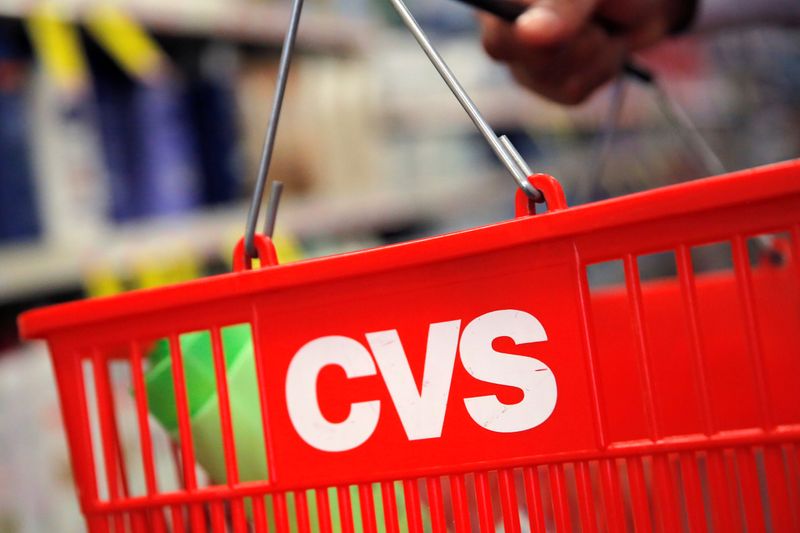(Reuters) - CVS Health Corp (N:CVS) raised its full-year profit forecast and beat Wall Street expectations for quarterly profit on Wednesday, as a drop in non-urgent medical procedures due to the COVID-19 pandemic led to fewer claims at its health insurance business.
Hospitals also rescheduled elective surgeries to reduce the burden on the healthcare system as coronavirus cases surged, benefiting health insurers including CVS Health and Humana Inc (N:HUM), which also beat quarterly profit estimates on Wednesday, as claims fell.
Shares of CVS, which also operates drugstores, rose nearly 4% in premarket trade.
The medical benefit ratio - the percentage of premiums paid out for medical services - at CVS' health insurance unit fell to 70.3% from 84% a year earlier. Sales at the unit rose 6.1% to $18.47 billion.
CVS like other health insurers including industry bellwether UnitedHealth (N:UNH) has warned that costs may go up in the remainder of the year as Americans catch up on their postponed surgeries.
Best known for its chain of pharmacies, CVS acquired a health insurance business through its 2018 deal for Aetna (NYSE:AET), and also operates a pharmacy benefit management unit.
"Our earnings in this environment demonstrate the strength of our strategy and the power of our diversified business model," said CVS Chief Executive Officer Larry Merlo in a statement.
The company raised its full-year profit forecast to between $7.14 per share and $7.27 per share from $7.04 per share to $7.17 per share
Net income attributable to the company rose nearly 54% to $2.98 billion in the second-quarter ended June 30, compared with a year earlier

Excluding items, the company earned $2.64 per share, beating analysts' average estimate of $1.93, according to IBES data from Refinitiv.